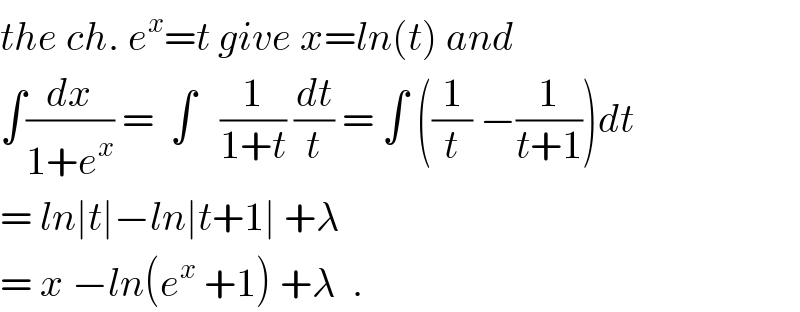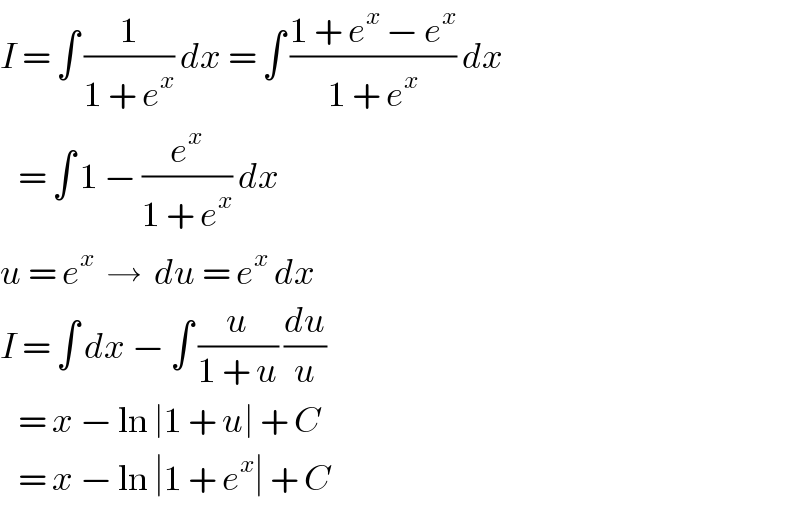
Question Number 31941 by mondodotto@gmail.com last updated on 17/Mar/18

Commented by abdo imad last updated on 20/Mar/18

$${the}\:{ch}.\:{e}^{{x}} ={t}\:{give}\:{x}={ln}\left({t}\right)\:{and} \\ $$$$\int\frac{{dx}}{\mathrm{1}+{e}^{{x}} }\:=\:\:\int\:\:\:\frac{\mathrm{1}}{\mathrm{1}+{t}}\:\frac{{dt}}{{t}}\:=\:\int\:\left(\frac{\mathrm{1}}{{t}}\:−\frac{\mathrm{1}}{{t}+\mathrm{1}}\right){dt} \\ $$$$=\:{ln}\mid{t}\mid−{ln}\mid{t}+\mathrm{1}\mid\:+\lambda\: \\ $$$$=\:{x}\:−{ln}\left({e}^{{x}} \:+\mathrm{1}\right)\:+\lambda\:\:. \\ $$
Answered by Joel578 last updated on 17/Mar/18

$${I}\:=\:\int\:\frac{\mathrm{1}}{\mathrm{1}\:+\:{e}^{{x}} }\:{dx}\:=\:\int\:\frac{\mathrm{1}\:+\:{e}^{{x}} \:−\:{e}^{{x}} }{\mathrm{1}\:+\:{e}^{{x}} }\:{dx} \\ $$$$\:\:\:=\:\int\:\mathrm{1}\:−\:\frac{{e}^{{x}} }{\mathrm{1}\:+\:{e}^{{x}} }\:{dx} \\ $$$${u}\:=\:{e}^{{x}} \:\:\rightarrow\:\:{du}\:=\:{e}^{{x}} \:{dx} \\ $$$${I}\:=\:\int\:{dx}\:−\:\int\:\frac{{u}}{\mathrm{1}\:+\:{u}}\:\frac{{du}}{{u}} \\ $$$$\:\:\:=\:{x}\:−\:\mathrm{ln}\:\mid\mathrm{1}\:+\:{u}\mid\:+\:{C} \\ $$$$\:\:\:=\:{x}\:−\:\mathrm{ln}\:\mid\mathrm{1}\:+\:{e}^{{x}} \mid\:+\:{C} \\ $$
Commented by mondodotto@gmail.com last updated on 19/Mar/18

$$\mathrm{thank}\:\mathrm{you} \\ $$
